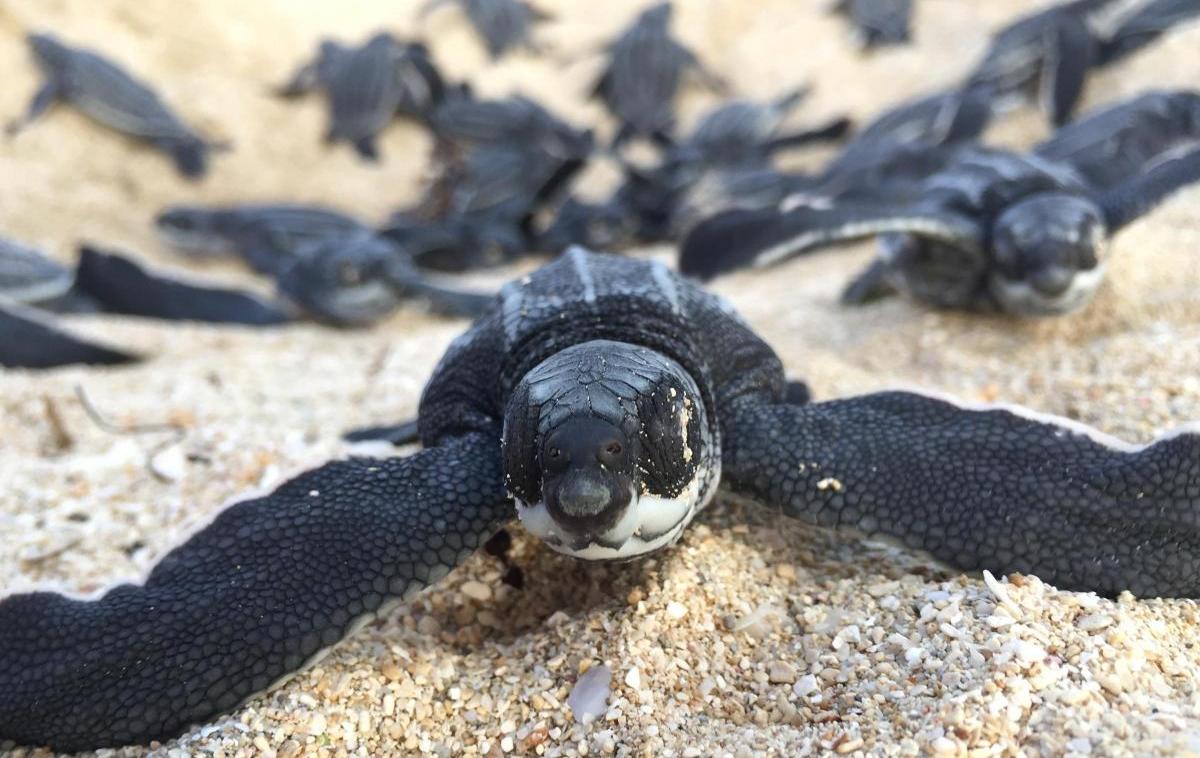Why we need to protect turtles
Courtesy Richard Branson, Virgin.com
Incredible to see these cute leatherback turtle hatchlings flip flopping over each other on Necker's Turtle Beach as they make their way down to the ocean for the first time.
One of my favourite things about living in the BVI is being surrounded by such stunning scenery and nature. We are extremely fortunate to be able to witness such beautiful scenes as this. In the BVI the same turtles will return to the beach that they were born on to nest again for generations.
These wonderful turtles have been on our planet for 100 million years – yet their future is uncertain. Leatherback turtles are vulnerable due to the change in conditions from climate change, unsustainable fishing methods, habitat loss, pollution and hunting.

Of the seven species of marine turtles in the world, six are internationally classified as vulnerable. The BVI is home to four of these species of turtles. Despite their dwindling numbers, a hunting season where turtles can legally be hunted and killed still exists.
We have a huge responsibility to protect turtles from extinction. On Necker Island Turtle Beach is a protected area, which has happily become a favourite turtle nesting and breeding site. We are working with a selection of non profit advocates in the BVI, who are working hard to bring awareness to our communities and protect sea turtles from extinction through conservation programmes and advocacy. As it is a matter of livelihood for some, Necker Island and other neighbouring resorts and restaurants have made a commitment to change the marketplace and purchase the invasive species of Lionfish, keeping turtles at their highest value alive. Several years ago Minister Saboto Ceasar of St Vincent lead a compelling campaign to protect turtles in St Vincent & The Grenadines. His campaign was called 'No Extinction in my Generation' and we are committed to empowering the BVI to follow St Vincent's admirable path towards total protection.

The BVI’s tourism is recovering after Hurricane Irma and having a thriving sea turtle population is just one of the brilliant reasons for tourists to return to the BVI. It’s a great time to for businesses to make protection and conservation of our environment a priority. We all have a lot to gain from protecting these amazing animals for this and for many generations to come.
